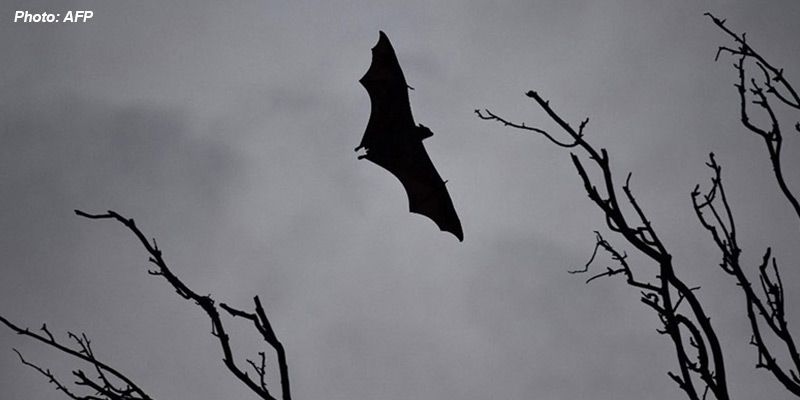- India
- Nov 03
Explainer - Monoclonal antibodies for treating Nipah virus
• The Indian Council of Medical Research (ICMR) has sought collaboration with Indian industry partners for manufacturing indigenously developed monoclonal antibodies for treating Nipah virus following the successful animal trials to ensure their timely access during outbreaks.
• Monoclonal antibodies are laboratory-made proteins that mimic the antibodies produced by the immune system to protect against foreign substances and harmful pathogens.
• The Nipah virus (NiV), which has an extremely high fatality rate, has emerged as one of the most significant zoonotic threats to India, with repeated outbreaks recorded since 2001.
• Globally, research and development efforts are advancing, but no licensed vaccine or antiviral is yet available.
Nipah virus
• Nipah virus (NiV), a zoonotic virus (transmitted from animals to humans), has a mortality rate as high as 70 per cent and that is considered to be a pathogen of pandemic potential.
• Nipah virus is a type of Henipavirus naturally held in fruit bats. The virus can cause illness in pigs and humans, and can be spread to humans from animals, infected food and other people with the virus.
• Fruit bats of the family Pteropodidae – particularly species belonging to the Pteropus genus – are the natural hosts for Nipah virus.
• Similar to SARS-CoV-2, NiV is an RNA virus that is transmitted by respiratory droplets. Because of the global pandemic of COVID-19, there is heightened concern regarding respiratory pathogens.
• In infected people, it causes a range of illnesses from asymptomatic (sub-clinical) infection to acute respiratory illness and fatal encephalitis. The virus can also cause severe disease in animals such as pigs, resulting in significant economic losses for farmers.
• Infected people initially develop symptoms including fever, headaches, myalgia (muscle pain), vomiting, and sore throat. This can be followed by dizziness, drowsiness, altered consciousness, and neurological signs that indicate acute encephalitis. Some people can also experience atypical pneumonia and severe respiratory problems, including acute respiratory distress.
• Encephalitis and seizures occur in severe cases, progressing to coma within 24 to 48 hours. Most people who survive acute encephalitis make a full recovery, but long-term neurologic conditions have been reported in survivors.
• Nipah virus was first recognised in 1999 during an outbreak among pig farmers in Malaysia. It was also recognised in Bangladesh in 2001, and nearly annual outbreaks have occurred in that country since.
• There were outbreaks in India, especially in Kerala, in the last seven years, and has so far claimed nearly 20 lives.
• It has been listed as one of the viruses most likely to cause the next pandemic by the World Health Organisation.
• Currently, there are no vaccines licensed for the prevention of Nipah disease. At least eight experimental preventive candidate vaccines against henipaviruses have been evaluated in pre-clinical animal models.
What are monoclonal antibodies?
• Antibodies are proteins generated by the immune system. They are one of the primary ways the body defends itself against disease.
• Polyclonal antibodies are mixtures of naturally occurring antibodies expressed from different immune cells. They are extracted from human or animal blood and are used in serum or convalescent plasma-based therapies to treat diseases including COVID-19, rabies and snakebite.
• Monoclonal antibodies are single antibodies expressed from identical immune cells that can be manufactured at commercial scale using cell systems. In simpler terms, monoclonal antibodies are immune system proteins that are created in the lab.
Critical for limiting impact of outbreaks
• The Expression of Interest (EoI) document stated that several vaccine platforms are under investigation, including those supported by Coalition for Epidemic Preparedness Innovations (CEPI), with one candidate having progressed to mid-stage human trials, with India identified as a key site.
• Similarly, research at other international institutes is ongoing to develop vaccine candidates. However, these are still years away from licensure.
• On the therapeutic front, monoclonal antibodies (mAbs) have emerged as the most promising option.
• The best-studied candidate is m102.4, a fully human monoclonal antibody targeting the G glycoprotein of the Nipah virus, which prevents viral entry by blocking its interaction with ephrin-B2/B3 receptors.
• The m102.4 antibody has shown strong protection in animal models and has been found safe in Phase 1 clinical trials.
• Though definitive human efficacy data are lacking, the antibody has been used under compassionate protocols in Australia and was also made available to Kerala during recent outbreaks.
• Given the very high case fatality rate and the absence of licensed vaccines, mAbs represent the only currently feasible biomedical countermeasure.
• Maintaining ready access to such antibodies ensures that India can act swiftly during an outbreak.
• Pre-positioned stocks, streamlined regulatory and ethical approvals, and defined clinical protocols for prophylaxis and therapeutic use would allow immediate deployment without delays, which often occur when arrangements are attempted in the middle of an outbreak.
• The ICMR-National Institute of Virology (ICMR-NIV), Pune, one of the constituent institutes of the Indian Council of Medical Research, has already initiated research and development in this direction, with experimental work at an advanced stage.

